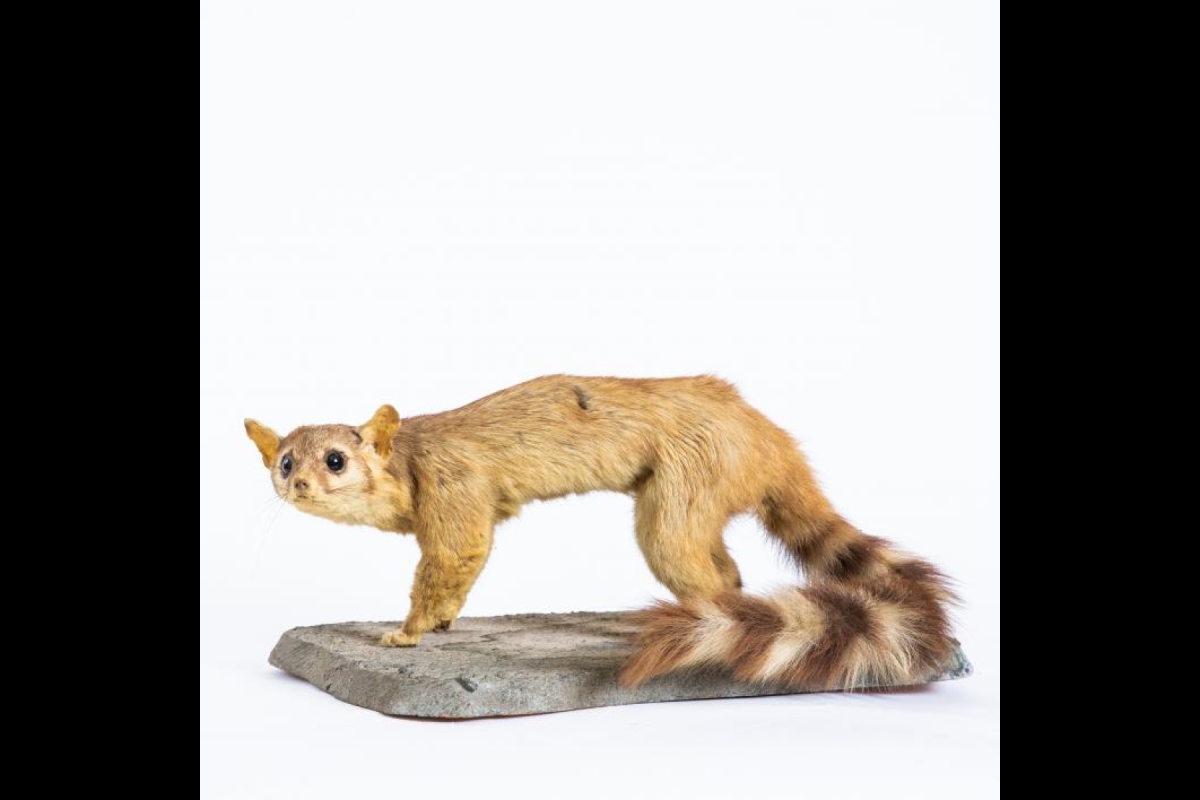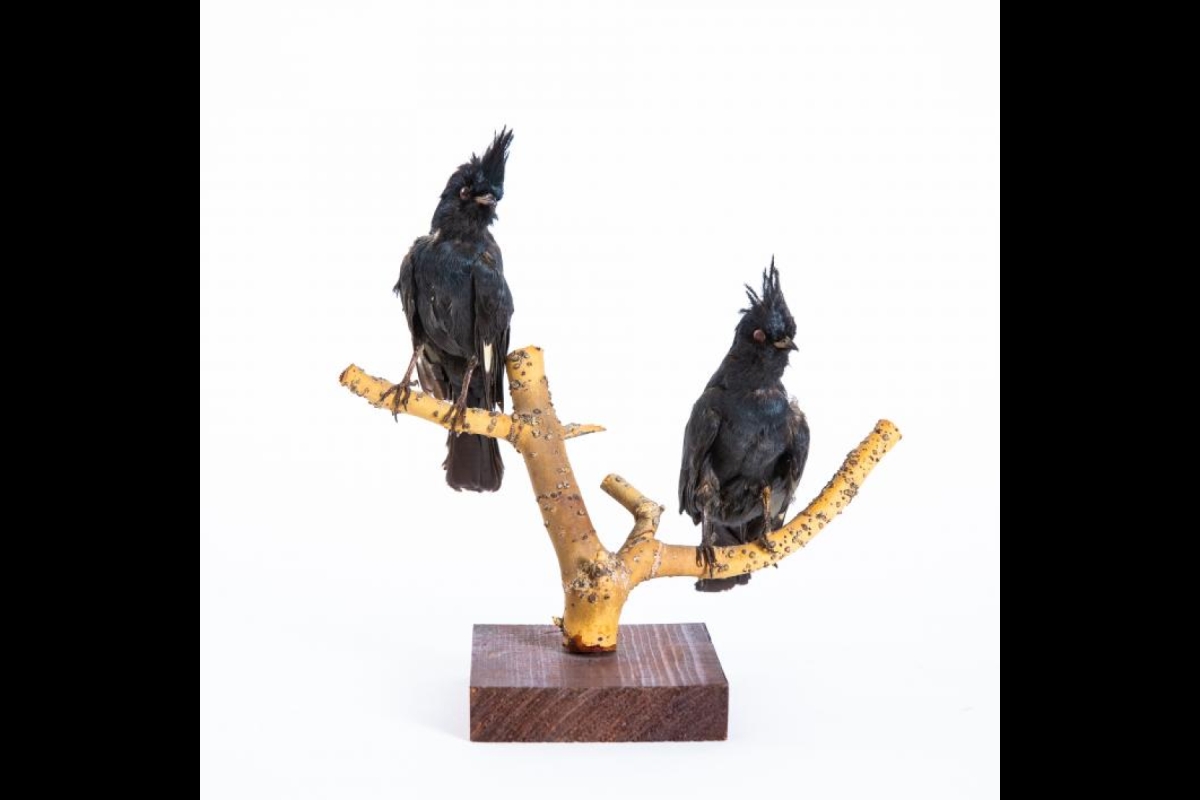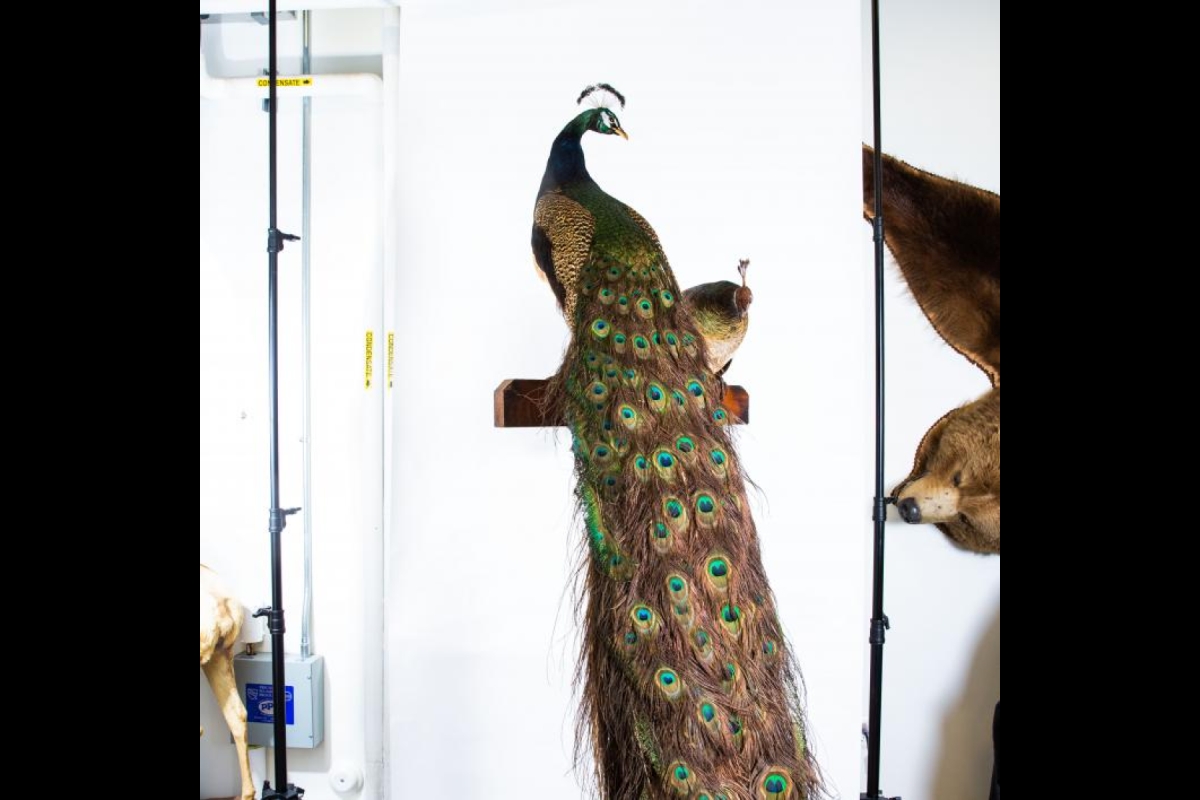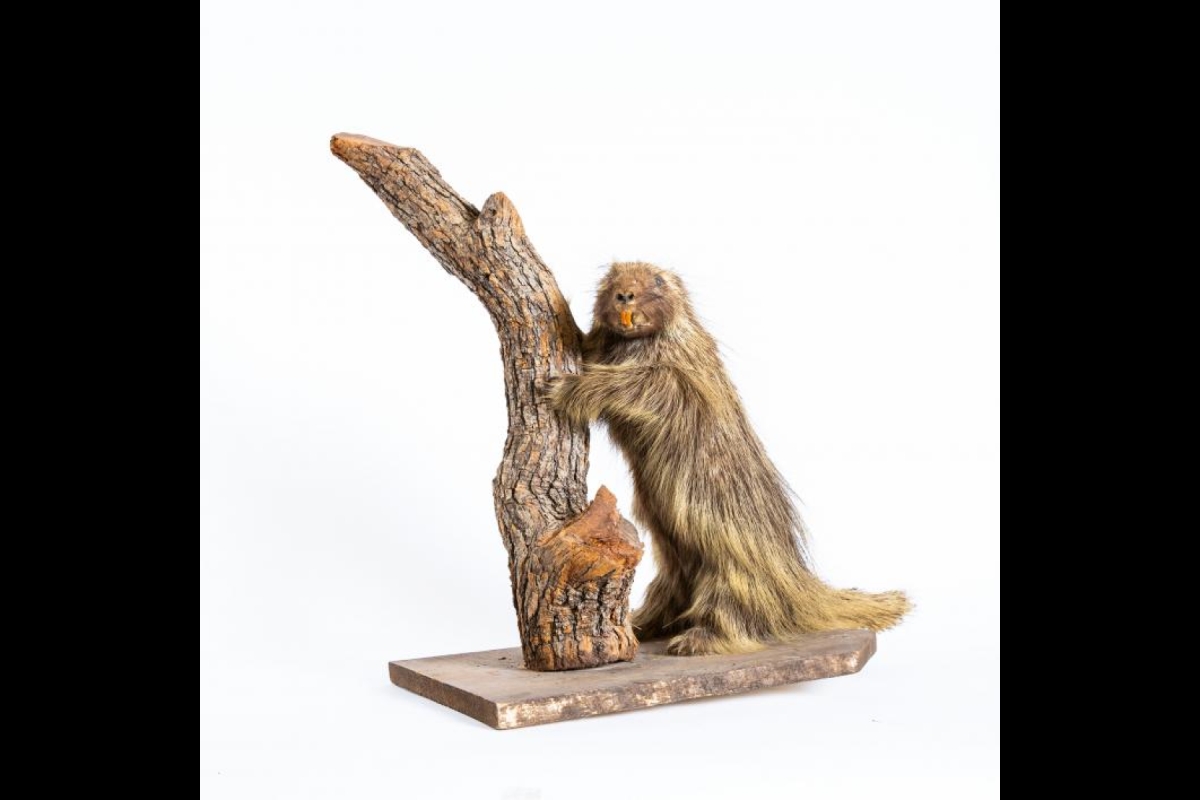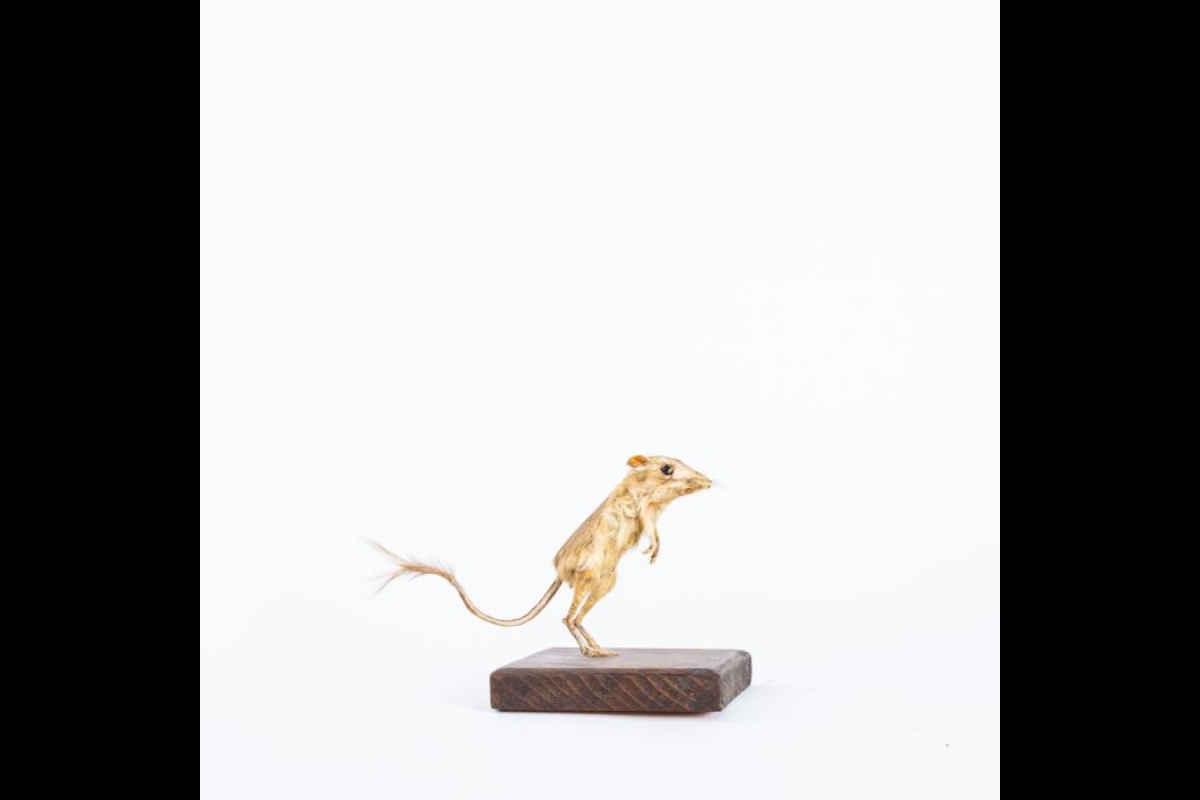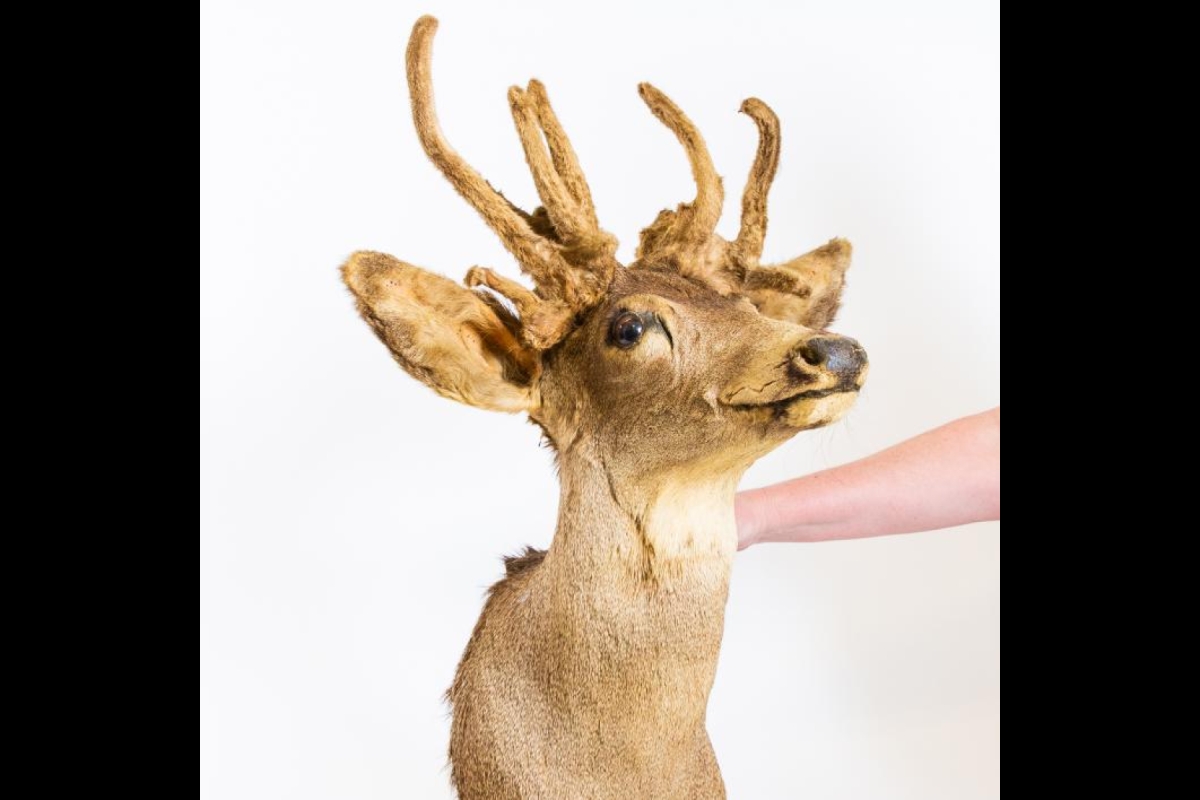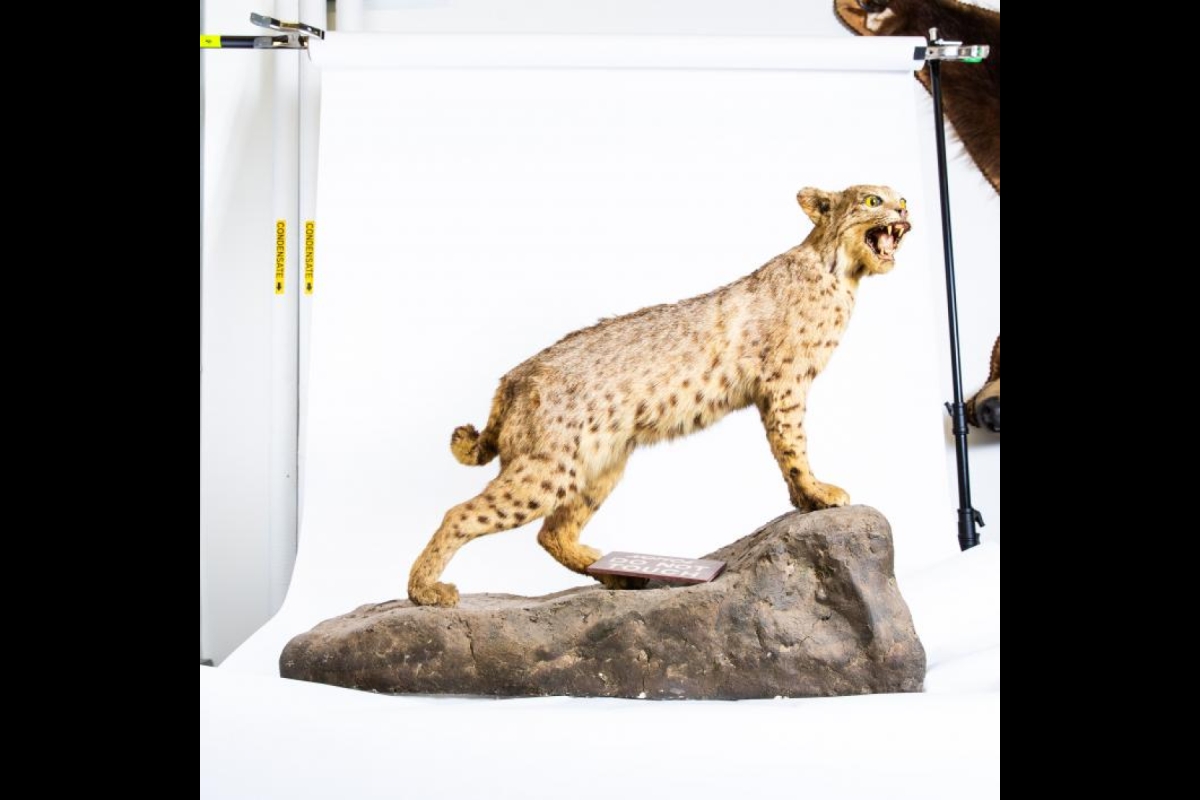Boasting a bevy of Gila monsters, horny toads, chuckwallas and ring-tailed cats, the iconic Buckhorn Baths Motel in Mesa, Arizona, was once home to the state's largest taxidermy collection. It was also, at one point, the largest private natural history collection in the state.
Once a spring training destination, the motel also hosted New York Giants owner Horace Stoneman and the likes of baseball players Johnny Mize, Mel Ott and Bobby Thomson, who first came to the motel in 1947. The athletes were attracted by its hot mineral springs that soothed aching muscles. Perhaps they also enjoyed trading glances with the infamous jackalope or the 62 mule deer and 26 javelina in the motel’s collection. The Giants’ first spring training foray helped lead to the growth of Cactus League baseball in the Valley.
Recently, the Buckhorn Baths — under a new owner — donated its entire collection to a biodiversity center at Arizona State University.
Video by Deanna Dent/ASU Now
Last year, Charlotte Johnston, manager of vertebrate collection in ASU's Natural History Collections, received a phone call asking the department to come load as many specimens as could be carried and to help find a way to keep the collection preserved.
The university answered the call, and the School of Life Sciences moved the collection to its Alameda facility, the home for ASU’s Natural History Collections. There, Johnston has catalogued more than 300 specimens from the Buckhorn Baths.
“I think the first reaction when people walk in … is ‘wow,' ” Johnston said.
But she admits, "We can't really keep 62 mule head deer. We plan to donate to other institutions who are willing to take on some of these specimens."
Johnston has been identifying partners at ASU, Maricopa Community Colleges and even an auction of some specimens through Arizona Game and Fish with proceeds going to law enforcement.
“Our goal is to take the collection and use it as a tool for education for children,” she said.
Top photo of Buckhorn Baths Motel by Marine 69-71 at English Wikipedia [CC BY-SA 3.0 (https://creativecommons.org/licenses/by-sa/3.0)]
More Science and technology

A spectacular celestial event: Nova explosion in Northern Crown constellation expected within 18 months
Within the next year to 18 months, stargazers around the world will witness a dazzling celestial event as a “new” star appears in the constellation Corona Borealis, also known as the Northern Crown.…

ASU researcher points to fingerprints as a new way to detect drug use
Collecting urine samples, blood or hair are currently the most common ways to detect drug use, but Arizona State University researcher Min Jang may have discovered something better.Fingerprints…

Learn about the secrets of forensic science straight from the experts
Over the next week, true crime enthusiasts will have a rare opportunity to discover the secrets of forensic science as experts share techniques for tracking down criminals.Behind Crime Scene…



